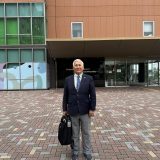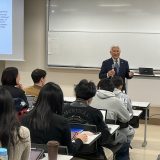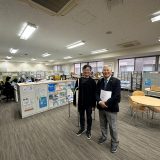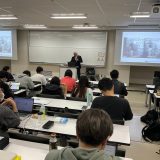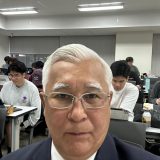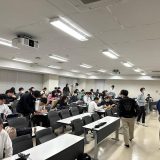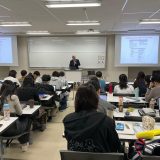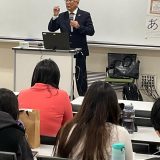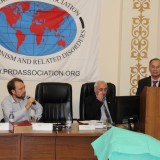Professor Sugraliev delivered a series of lectures for students of the International University of Health and Welfare in Japan
From October 13 to October 24, A.B. Sugraliev, Head of the Department of Internal Medicine at S.D. Asfendiyarov Kazakh National Medical University (KazNMU), visited the International University of Health and Welfare (IUHW) in Narita, near Tokyo, as part of an academic mobility program.
During the visit, Dr. Sugraliev delivered a series of lectures to sixth-year medical students based on a program developed in collaboration with IUHW professor Tatsuo Shimosawa, who had previously visited KazNMU in April 2024 as part of a visiting scholar initiative. The lectures focused on the diagnosis and treatment of cardiovascular diseases, with particular attention to contemporary challenges in managing heart failure as well as venous, intracardiac, and arterial thrombosis.
Dr. Sugraliev noted the students’ exceptional discipline: the lecture hall was already full by 8:00 a.m., well before the session began. Students are not permitted to photograph lecture presentations, ensuring full attention during the sessions. Each lecture concluded with interactive discussions of complex diagnostic cases, during which students actively engaged in problem-solving and expressed sincere appreciation for the informative and insightful content.
During conversations with faculty and students, it became clear that final-year students frequently undertake internships abroad, creating opportunities for student exchange programs in internal medicine between KazNMU and IUHW. Following the lectures, faculty members from both institutions exchanged professional experiences and discussed potential avenues for future collaboration.
As part of the program, Dr. Sugraliev also visited Narita Clinical Hospital, a multidisciplinary teaching hospital where IUHW students complete their clinical training and work directly with patients. He participated in patient examinations and multidisciplinary clinical discussions.
A noteworthy aspect of IUHW’s training system is that international students must learn Japanese and pass a state language proficiency exam before being granted access to patients—an approach that could serve as a valuable model for implementation at KazNMU.
Narita Clinical Hospital is located in a scenic, forested area outside Tokyo. Its infrastructure includes wide corridors designed for patient evacuation during earthquakes. According to hospital staff, the facility treats patients from several neighboring Asian countries, including Kazakhstan.
This academic mobility initiative significantly strengthened international cooperation between KazNMU and the International University of Health and Welfare in Narita. It also contributed to enhancing KazNMU’s visibility and reputation among students and faculty members in Japan.
Founded in 1995, IUHW is a relatively young private university, yet it is recognized as one of Japan’s leading institutions in the fields of health and welfare. It operates campuses in five cities, and its graduates maintain an impressive employment rate of nearly 100% annually. The university comprises nine schools and 27 departments, covering a broad spectrum of healthcare and welfare disciplines.
IUHW maintains strong partnerships with leading universities in the United States, Europe, and Asia, including collaborations within the CIS region with Sechenov University (Moscow) and Belarusian State Medical University.
Dr. Sugraliev’s participation in the academic mobility program was actively supported by Junichiro Takahashi (Abdibek Abay Kalibek uly), Chairman of the Kazakh Diaspora Society in Japan, a Japanese citizen and Associate Professor at Showa Medical University. Abay Kalibek currently works at the Brain Analysis and Digital Medicine Research Institute.



